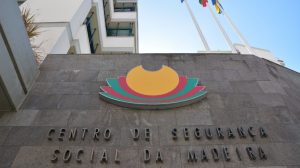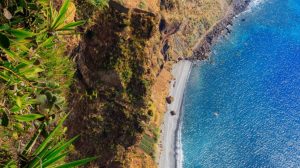Rice, coffee grounds, apple husks, and plastic bottles are examples of the “new generation of products” used in the Portuguese footwear industry, which is to be assumed as an international reference in the development of sustainable solutions.
“The footwear cluster has assumed as its vision to be the international reference in the development of sustainable solutions, reinforcing Portuguese exports based on a highly competitive national production base, based on knowledge and innovation,” advances the Portuguese Association of Footwear Industrialists, Components, Leather Goods and Their Substitutes (APICCAPS).
Within the scope of the project ‘BioShoes4All’ is being developed on the premise that “nothing is wasted, everything is transformed.”
Cited in a statement released by APICCAPS, the coordinator of the project explains that ‘BioShoes4All’ has the ambition to promote a radical change in materials, technologies, processes, and products of footwear and leather goods, generating sustainable solutions, economically valued in the international market.
“This ambition is supported by the consortium of excellence that we have established, composed of 70 partners from different sectors, from biological resources, materials, chemicals, components, footwear, and leather goods, to producers of production technologies and software, waste recovery companies, traders and retailers who together will share resources, risks, and opportunities,” stated Maria José Ferreira.
Fifty new products will be developed over the next three years all with an enhanced ecological footprint. This includes 25 industrial pilot lines and more than 50 publications on a wide range of topics including promotion and training and a wide number of dissemination, initiatives.
Co-financed by the Recovery and Resilience Plan (PRR), the ‘BioShoes4All’ project thus focuses on the development and production of new biomaterials and components and eco-products of footwear and leather goods, based on the principles of circular bio-economy and sustainable development in all its dimensions. The goal is to create differentiated solutions, valued by customers and consumers, contributing to a new sustainable bio-economy, the efficient valorization of regional and national bioresources, and decarbonisation.
Additionally, it aims to develop and apply new approaches and technologies aimed at minimising and valuing production and post-consumption waste, and the agile and efficient production of materials, components, footwear, and leather goods with a smaller environmental footprint, recycled and/or recyclable, in the context of a green, digital, competitive and circular economy.”
In this way, the APICCAPS points out, it contributes to increasing the life cycle of materials, more efficient management of material and energy resources, carbon neutrality, combating climate change, and increasing international sector competitiveness.
As explained by the association, ‘BioShoes4All’ is divided into five pillars of intervention: Biomaterials (Pillar 1), Ecological Footwear (Pillar 2), Circular Economy (Pillar 3), Advanced Production Technologies (Pillar 4), and Training and Promotion (Pillar 5).
To achieve the objectives, it provided for a wide and complementary range of actions, including research, development, and innovation from the industrial research process to the transfer to the market, innovation in processes and organisation, including new production lines and productive investments and training, communication and broad promotion of the project and the cluster at a national and international level, content aimed at consumers, businesses, and institutions.
Pillar 1 of ‘BioShoes4All’ proposes to study and develop new biohides, biomaterials, biocomposites, components, and processes by incorporating bio-based materials, including biomass and agro-industrial by-products, reducing the use of mainly fossil-based materials, increasing resource efficiency and eliminating critical substances.
Pillar 2, on the other hand, takes on the development of methodological studies of eco-design and environmental footprint of products, of new concepts of ecological footwear and leather goods with a lower environmental footprint, durable, reparable, recyclable, differentiated, customizable with high added value.
In turn, Pillar 3 aims at developing and demonstrating solutions to regenerate/value the main types of cluster production waste and to start valuing post-consumer products, increasing the circularity in production processes along value chains and industrial symbiosis.
Pillar 4 will provide innovative technologies for the vertical and horizontal scanning of the ‘Footwear Cluster 4.0,’ including solutions for tracking production processes and products, advanced planning, automation/robotization of critical production operations, and introduction of manufacturing eco processes.
Finally, Pillar 5 will “prepare and implement the global capacity building and promotion and dissemination actions of the project, in conjunction with the work to be carried out on each of the pillars.”
Other countries are using mango pulp to create vegetarian leather.
Samantha Gannon
info at madeira-weekly.com





